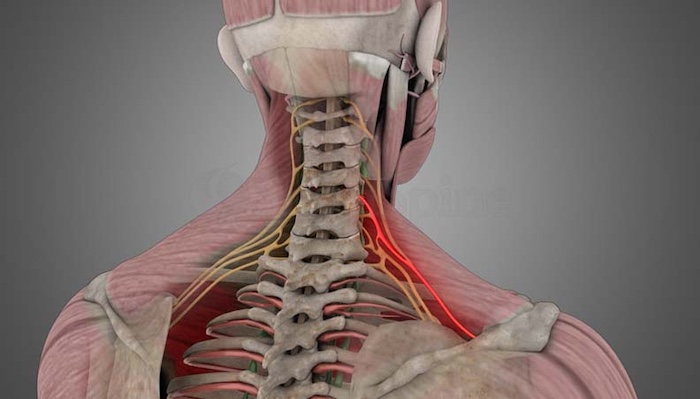
Nerve impingement, medically known as radiculopathy, is a condition that occurs when a nerve in the spine is compressed or irritated, causing pain, weakness, or numbness that radiates to different parts of the body. The pain often extends from the spine to areas such as the shoulders, arms, lower back, or legs, depending on which nerve is affected. At Precision Pain Care and Rehabilitation, we understand the impact of nerve impingement and utilize interventional pain management techniques to help patients regain their quality of life.
What Causes Nerve Impingement?
Nerve impingement is often caused by degenerative changes in the spine, such as herniated discs, bone spurs, or spinal stenosis. Conditions like arthritis or trauma can also lead to nerve compression. This condition is commonly seen in the cervical (neck) and lumbar (lower back) regions of the spine, which are more susceptible to stress and wear and tear over time.
Symptoms of Radiculopathy
The symptoms of radiculopathy vary depending on the location of the compressed nerve. Some common signs include:
- Pain: Radiating pain that travels along the nerve's pathway, such as pain radiating from the neck down the arm (cervical radiculopathy) or from the lower back down the leg (sciatica).
- Numbness and Tingling: A pins-and-needles sensation that follows the nerve pathway.
- Weakness: Reduced strength in muscles affected by the impinged nerve, leading to challenges in activities like lifting objects or walking.
Diagnosing Nerve Impingement
A thorough clinical evaluation is essential for diagnosing nerve impingement. It typically involves a combination of:
- Physical Examination: Evaluating the patient's symptoms, reflexes, muscle strength, and sensation in affected areas.
- Imaging Studies: MRI, CT scans, and X-rays may be used to identify the exact location and cause of the nerve compression.
- Electrodiagnostic Tests: These tests, such as electromyography (EMG), help determine nerve function and the extent of nerve damage.
Interventional Pain Management for Radiculopathy
Interventional pain management offers minimally invasive options that target the source of nerve pain directly, providing effective relief for many patients. At Precision Pain Care and Rehabilitation, some of the treatments available include:
- Epidural Steroid Injections: Epidural steroid injections deliver anti-inflammatory medication directly to the area of the affected nerve, reducing inflammation and relieving pain. These injections can provide significant relief, allowing patients to engage in physical therapy for long-term recovery.
- Nerve Blocks: Nerve blocks are another option to alleviate nerve pain. An anesthetic is injected near the affected nerve to temporarily block the pain signals. This can help reduce the pain and allow patients to participate in rehabilitative exercises.
- Radiofrequency Ablation (RFA): RFA is used to target and deactivate the nerve responsible for pain. It is particularly effective for chronic radicular pain that has not responded well to other treatments.
- Spinal Decompression Therapy: Spinal decompression involves stretching the spine to alleviate pressure on compressed nerves. It can be helpful for patients with herniated discs or degenerative disc disease.
The Role of Physical Therapy
Physical therapy is often used in conjunction with interventional treatments to enhance recovery. Exercises that strengthen core muscles and improve flexibility can help alleviate pressure on the nerves and promote spinal stability. A personalized rehabilitation program can reduce the likelihood of recurrent symptoms and improve overall spine health.
When to Seek Medical Help
While many cases of radiculopathy can resolve with rest and conservative treatments, it is essential to seek medical attention if:
- The pain persists for several weeks despite home treatment.
- You experience sudden or severe muscle weakness.
- You have difficulty with bladder or bowel control, which could indicate a medical emergency known as cauda equina syndrome.
Benefits of Interventional Pain Management
Interventional pain management techniques are highly effective for addressing nerve impingement, especially when conservative methods fail to provide relief. These minimally invasive procedures:
- Reduce Dependence on Opioids: Patients can manage their pain without relying heavily on pain medications.
- Minimize Recovery Time: Unlike surgery, interventional procedures have shorter recovery periods, allowing patients to return to daily activities sooner.
- Promote Long-Term Relief: Treatments such as epidural steroid injections and nerve blocks can offer sustained pain relief, enabling patients to participate in physical therapy and make lifestyle adjustments that further alleviate symptoms.
Conclusion
Nerve impingement, or radiculopathy, can significantly impact a person’s quality of life, causing pain, discomfort, and difficulty performing daily activities. At Precision Pain Care and Rehabilitation, our approach focuses on interventional pain management techniques that provide targeted relief, allowing patients to regain their mobility and enjoy an improved quality of life.
If you or a loved one is experiencing symptoms of nerve impingement, don't hesitate to reach out to Precision Pain Care and Rehabilitation. Our team is committed to providing compassionate, comprehensive care to help you get back to doing the things you love.
Precision Pain Care and Rehabilitation has two convenient locations in Richmond Hill – Queens, and New Hyde Park – Long Island. Call the Queens office at (718) 215-1888 or (516) 419-4480 for the Long Island office to arrange an appointment with our Interventional Pain Management Specialists, Dr. Jeffrey Chacko or Dr. Sonny Ahluwalia.















